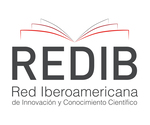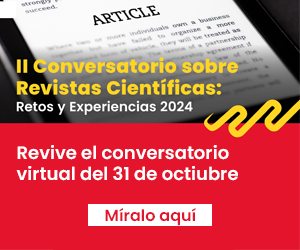Construction and validation of a job-demand-control-support scale to measure work stress
DOI:
https://doi.org/10.20453/rmh.v33i1.4165Keywords:
Stress, Psychological stress, occupational stress, social supportAbstract
Objectives: To design and build-up an instrument to measure work stress based on the Karasek’s job-demand-control- support (JDCS) as well as to estimate its psychometric properties. Methods: several steps were implemented; a) systematic review of the literature, b) to determine the factorial structure of the scale, c) to apply natural semantic networks to identify the psychological meaning of factors in the scale, d) contrast the literature results with the semantic networks, e) to elaborate a reagent bank, f) to validate the scale with 60 expert judges, g) integration of the scale, h) application of the scale to 619 workers. Results: the scale had adequate validity construct and reliability values (Alpha-Cronbach of 0.711 and 0.890, respectively). Work stress positively correlated with job demand and negatively with job control. A higher work stress index was found among workers who presented psychosomatic disorders. Conclusions: the scale is valid and reliable to evaluate work stress.
Downloads
References
Karasek R, Brisson C, Kawakami N, Houtman I, Bongers P, Amick B. The Job Content Questionnaire (JCQ): an instrument for internationally comparative assessments of psychosocial job characteristics. J Occup Health Psychol. 1998; 3(4):322-55. Doi: 10.1037//1076-8998.3.4.322
Siegrist J. Adverse health effects of high effort-low rewards conditions at work. J Occup Health Psychol. 1996; 1:27-43. Doi: 10.1037/1076-8998.1.1.27
Demerouti E, Bakker AB, Nachreiner F, Schaufeli WB. The job demands-resources model of burnout. J Appl Psychol. 2001; 86:499-512. Doi: 10.1037/0021- 9010.86.3.499
Karasek R. El modelo de demandas/control: enfoque social, emocional, fisiológico del riesgo de estrés y desarrollo de comportamientos activos. En: Sauter S, Muyphy L, Hurrell J, Levi L. Enciclopedia de Salud y Seguridad en el Trabajo. Madrid, España: INSHT; 2012.
Storms G, Casaer S, De Wit R, Van Den Bergh O, Moens G. A psychometric evaluation of a Dutch version of the job content questionnaire and of a short direct questioning procedure. Work Stress. 2001; 15:131–43. Doi: 10.1080/02678370110066977
Kawakami N, Kobayashi F, Araki S, Haratani T, Furui H. Assessment of job stress dimensions based on the job demands-control model of employees of telecommunication and electric power companies in Japan: Reliability and validity of the Japanese Version of the Job Content Questionnaire. Int J Behav Med. 1995; 2:358–375. Doi: 10.1207/s15327558ijbm02 04_5
Niedhammer I. Psychometric properties of the French version of the Karasek job content questionnaire: a study of the scales of decision latitude, psychological demands, social support, and physical demands in the GAZEL cohort. Int Arch Occup Environ Health. 2002; 75:129–144. Doi: 10.1007/s004200100270
Cheng Y, Luh W, Guo YL. Reliability and validity of the Chinese version of the Job Content Questionnaire in Taiwanese workers. Int J Behav Med. 2003; 10(1):15-30. Doi: 10.2466/pr0.100.1.35-46
Edimansyah B, Rusli B, Naing L, Mazalisah M. Reliability and construct validity of the Malay version of the Job Content Questionnaire (JCQ). Southeast Asian J Trop Med Public Health. 2006; 37(2):412-6.
Eum K, Li J, Jhun H, et al. Psychometric properties of the Korean version of the Job Content Questionnaire: data from health care workers. Int Arch Occup Environ Health. 2007; 80(6):497-504. Doi: 10.1007/ s00420-006-0156-x
Juárez-García A. Factores Psicosociales laborales relacionados con la tensión arterial y síntomas cardiovasculares en personal de enfermería en México. Salud Pública Méx. 2007; 49(2):109-117. Doi: 10.1590/S0036-36342007000200006
Cedillo L, Karasek R. Reliability and validity of the spanish version of the job content questionnaire among maquiladora women workers. USA: JCQ-Center; 2003.
Ansoleaga ME, Castillo-Carniglia A. Riesgo psicosocial laboral y patología mental en trabajadores de hospital. Rev Fac Nac Salud Pública. 2011; 29(4):372-379.
De Araújo TM, Karasek R. Validity and reliability of the job content questionnaire in formal and informal jobs in Brazil. Scand J Work Environ Health. 2008; 6:52–59.
Phakthongsuk P, Apakupakul N. Psychometric properties of the Thai version of the 22-item and 45-item Karasek job content questionnaire. Int J Occup Med Environ Health. 2008; 21(4):331-44. Doi: 10.2478/v10001-008-0036-6
Choobineh A, Ghaem H, Ahmedinejad P. Validity and reliability of the Persian [Farsi] version of the Job Content Questionnaire: a study among hospital nurses. East Mediterr Health J. 2011; 17(4):335-341. Doi: 10.26719/2011.17.4.335
Jabali SM, Ghaffari M, Pournik O, Ghalichi L, Yazdi A, Motevalian S. Reliability and Validity of Persian Version of Job Content Questionnaire in Health Care Workers In Iran. Int J Occup Environ Med. 2013; 4(2):96-101.
Gómez OV. Evaluación de estresores psicosociales en el trabajo: propiedades psicométricas del Cuestionario del contenido del trabajo (JCQ) con trabajadores colombianos. Rev Latinoam Psicol. 2011; 43(2):329-342.
Giang HT, Corbière M, Negrini A, Khuê M, Reinharz D. Validation of the Karasek-Job Content Questionnaire to measure job strain in Vietnam. Psychol Rep. 2013; 113(2):363-379. Doi: 10.2466/01.03.PR0.113x20z3
Alexopoulos E, Argyriou E, Bourna,V. Reliability and Validity of the Greek Version of the Job Content Questionnaire in Greek Health Care Workers. Saf Health Work. 2013; 6:233-239. Doi: 10.1016/j. shaw.2015.02.003
Karasek R. Job Content Questionnaire and User’s Guide. Los Angeles: University of Southern California; 1985.
Karasek R. Job demands, job decision latitude and mental strain. Implications for job redesign. Adm Sci Q. 1979; 24:285-308. Doi: 10.2307/2392498
JCQ Center. JCQ and JCQ2/Karasek Job Content Questionnaire. USA: JCQ Center Global; 2019.
Downloads
Published
How to Cite
Issue
Section
License
Authors assign their rights to the RMH so that may disseminate the article through the means at their disposal. The journal will provide forms of affidavit of authorship and authorization for the publication of the article, which shall be submitted with the manuscript. Authors retain the right to share, copy, distribute, perform and publicly communicate their article, or part of it, mentioning the original publication in the journal.



















